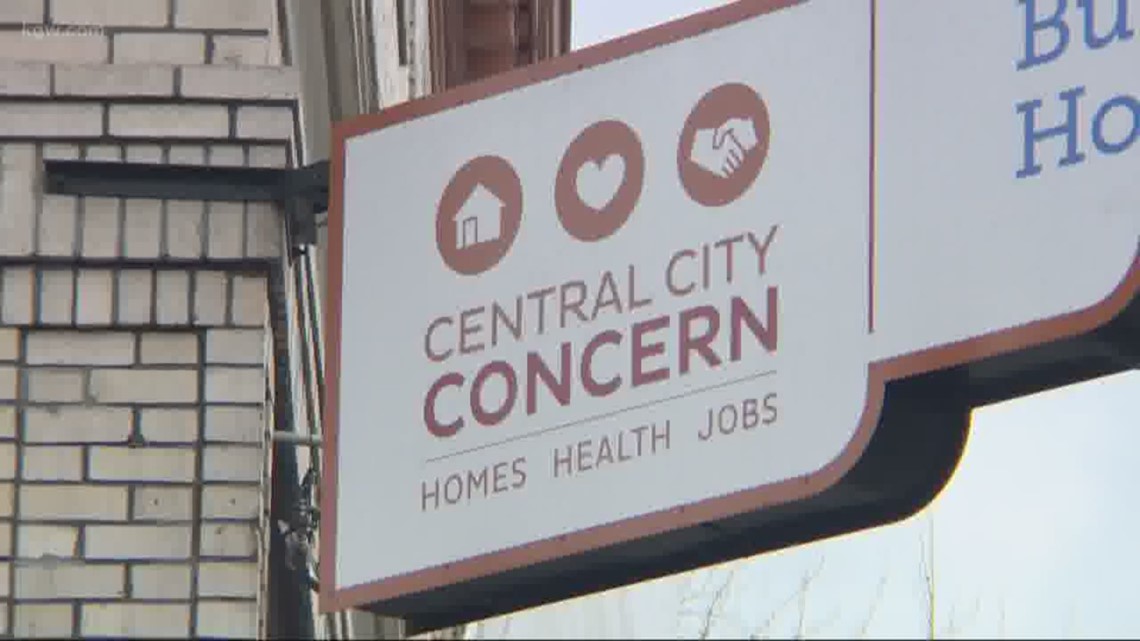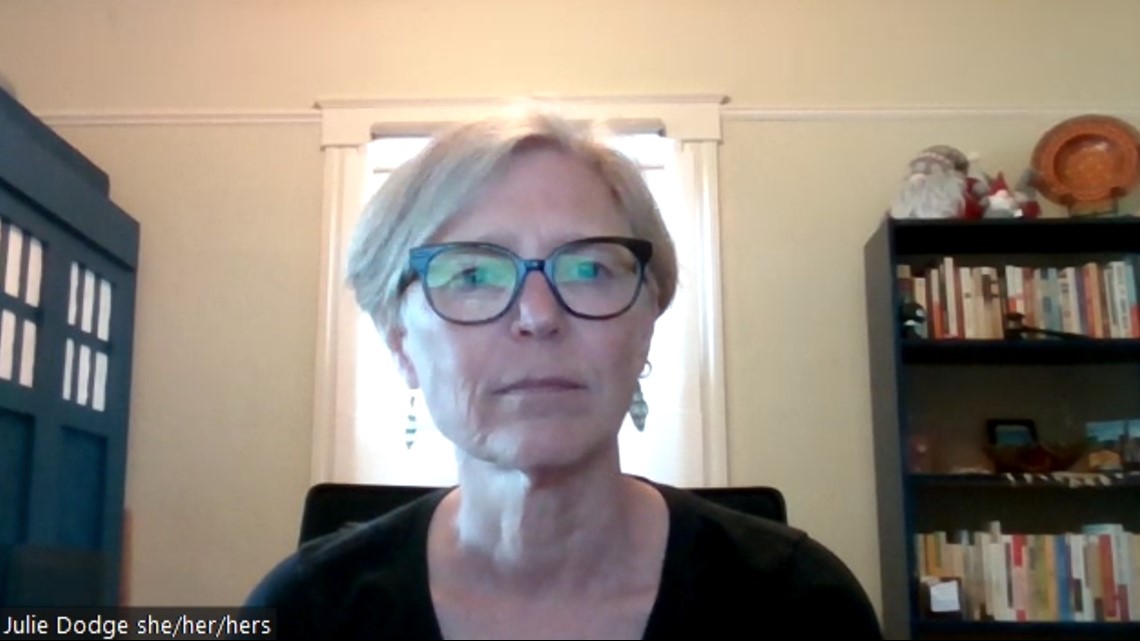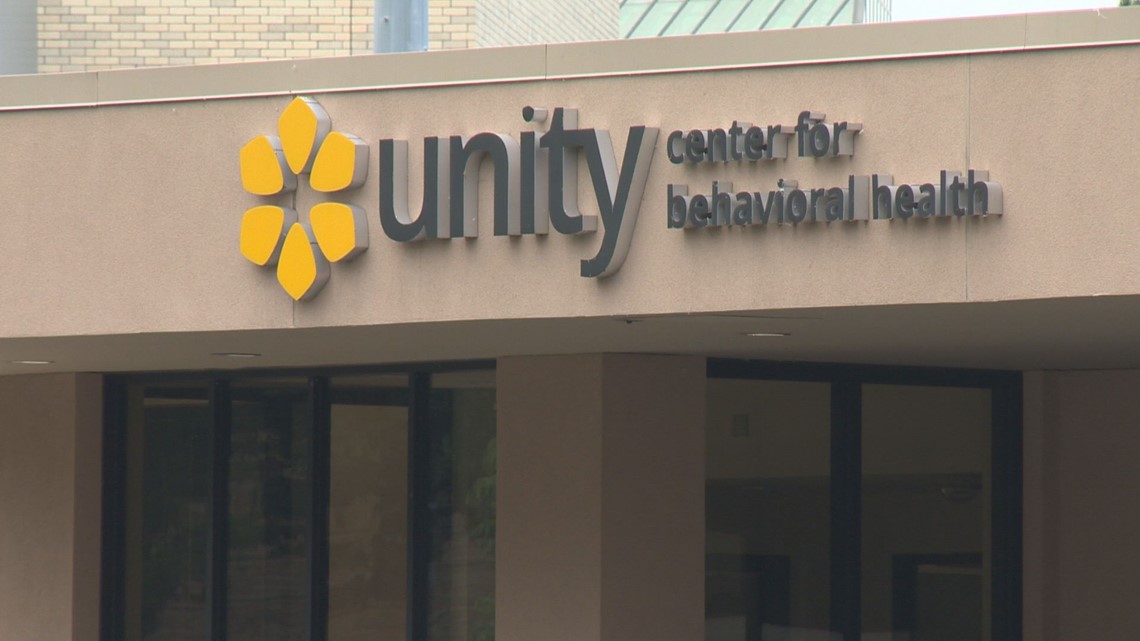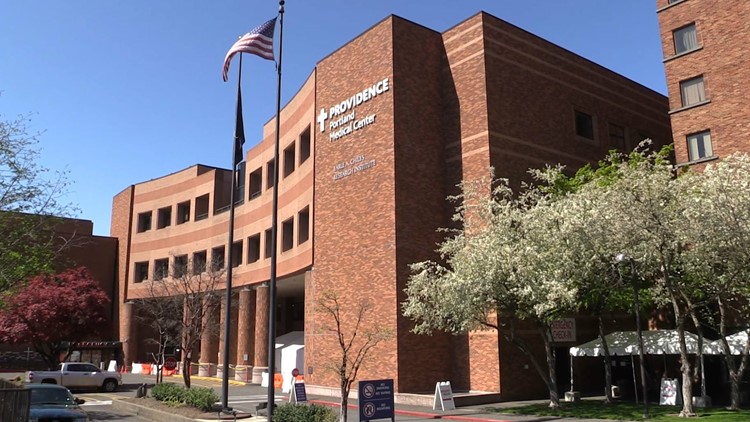PORTLAND, Ore. — A proposal passed Wednesday by the Portland City Council to help fund new sobering beds in the city represents one aspect of a larger, long-awaited plan to fill major gaps in the metro area's services for people suffering from mental illness and addiction.
The Portland ordinance allocates $335,000 to the Unity Center for Behavioral Health in the Lloyd District, supporting efforts to overhaul its facilities and create nine sobering beds for acute mental health episodes related to substance use.
Another proposal, with separate funding sources, will see nine sobering beds added at Providence Portland Medical Center.
Work has been ongoing for many months now to replace Central City Concern's sobering station, which closed at the beginning of 2020. It was designed and operated for 30 years as a place for police, firefighters and other first responders to take people in states of severe intoxication and allow them to safely sober up for a few hours.
But the sobering station was essentially what's been colloquially known as a "drunk tank." It was equipped to handle people extremely intoxicated from alcohol, even some other drugs — it wasn't a medical or psychiatric facility, and it was not equipped to handle the changing landscape of drug use. By 2020, that meant a flood of increasingly powerful methamphetamines and opioids, often accompanied by aggressive behavior, psychotic episodes or overdoses.


It also became more difficult to know what behavior was caused by substance use and what caused by mental health symptoms — where one ended and the other began.
RELATED: At the intersection of homelessness, mental illness and addiction in Portland lies psychosis
With Central City's sobering station gone, highly intoxicated patients instead ended up at hospital ERs or booked directly into jail. And most of the time, the ones not destined for a lengthy jail stay simply ended up right back on the street.
A 'front door' to crisis management
Almost exactly one year ago, the city of Portland and Multnomah County partnered up on a new agreement surrounding BHECN (pronounced "beacon"), the Behavioral Health Emergency Coordination Network. It brought together people from local government agencies, hospital systems and nonprofits, all involved in behavioral health, to brainstorm solutions to the area's deficiencies in mental health crisis care — trying to bridge some of the gaps between the city and county, public and private entities, mental health and substance use disorders.
Right away, Portland Mayor Ted Wheeler came out with a big swing, pledging to open up, in 2023, a brand new 24/7 polysubstance stabilization center — a replacement for Central City Concern's sobering station that would also represent a major improvement. It was envisioned as a one-stop shop for people in a behavioral health crisis, involving intoxication with just about any substance or combination of substances.
In October, Wheeler's office put out an RFI (request for information) on the stabilization center — essentially shopping around for an organization willing to operate for a maximum first-year operating cost of $8.3 million, paired with $2.1 million for capital investment in the facility.
In the RFI, the city said that BHECN's goal was to develop a "front door" for the behavioral health crisis management system. The stabilization center was supposed to be that front door.
But nothing came of the proposal, at least in the short-term. And in the following months, BHECN pivoted to other ideas that could help pick up some of the slack in Multnomah County's crisis care system, perhaps in more manageable pieces.
Fast forward to this week, and the news that Portland would help fund nine new sobering beds at Unity — the result of those ongoing conversations about how to fill the gap.
"It's not the culmination, but it's part of it," said Julie Dodge, consultant for Multnomah County on BHECN.
In early 2021, Julie Dodge was appointed interim behavioral health director at Multnomah County. While she's since left that position, she now serves as a key member of BHECN's executive committee.


"Unity is expanding what they do, and they're remodeling their triage space to accommodate people with that acute sobering-stabilization need," Dodge said. "And they'll have services that go longer than just the 3-8 hours of sobering, but they'll be able to address if someone is psychotic, if they're having other issues."
Portland approved the grant to Unity Wednesday after a brief hold-up due to an error with the original agreement, which noted eight sobering beds, when the correct number was nine. Commissioners expressed enthusiastic support for the ordinance.
"I'm an aye on this," Commissioner Mingus Mapps said, "and I'm really glad to see these beds in place, this is a critically important unmet need in our community ... we have nine beds here, I think we're told that it would be good to have about another 40 more. And that's my goal, and I look forward to working with this council to get those additional beds online."
RELATED: Some Portland commissioners reluctant to renew homeless services contract with Multnomah County
And Portland's contribution for the Unity revamp has already been matched by Multnomah County, Dodge said.
But the majority of the funding for the Unity expansion comes from the nonprofit CareOregon, a health insurance provider largely funded through the Oregon Health Plan and Medicare. CareOregon will contribute about $4 million toward Unity's capital costs and ongoing operations, supported by the smaller contributions from the city and county, according to a spokesperson for Legacy Health.


The beds at Unity are just one piece of the puzzle. Providence Portland Medical Center is adding eight sobering and stabilization beds, according to Dodge, thanks in large part to funding from Measure 110.
"For those people who present in the emergency room with those significant behaviors — they shouldn't really be in the emergency room because it's too chaotic, so they're creating a new space that will add another eight beds," Dodge said.
While construction on that new space is still getting off the ground, Dodge said Providence's plan will include the hiring of some drug and alcohol specialists for the ER in order to start offering some additional services in the meantime.
Just the beginning
But, as Dodge indicated, these are just some initial steps toward meeting behavioral health needs in Multnomah County.
BHECN is still working on something that sounds simple, but may be the most complicated task of all — creating a seamless network for both mental health and substance use care, making it easier for people to access the resources that, in many cases, already exist but don't all pull together.
"In Multnomah County we already have mobile crisis, we have urgent walk-in, we have psychiatric emergency services that are housed at Unity," Dodge said. "And a lot of it was focused on the mental health side, but it didn't include the substance use side. And what we know is that so many people have both and substance use and mental health concerns.
"And so we're really looking at this as — instead of building a whole new crisis response space for substance use only, it's like, how do we bring the crisis system together so that we can have an integrated system and help people get what they need at the right time, regardless of how they enter the system."
And there are other gaps that BHECN is working to fill in the future, Dodge said. While the beds at Unity and Providence are intended to be there for some of the most severe cases involving substance use and mental health symptoms, there's still a need for a sobering station for people who aren't exhibiting more extreme behaviors.
Meanwhile, the intersection of substance use and mental health still needs more attention and resources in Portland.
"We think this is a long-term commitment, to not just — there's some things we need to do immediately, but also there's a long-term plan to better integrate and connect across our system," Dodge said.
In her 2024 budget proposal, Multnomah County Chair Jessica Vega Pederson pledged to support BHECN with $2 million from the county's opioid settlement funds, which Dodge said will be a long-term source for expanding behavioral health resources when paired with more funds from the city of Portland.
Adequate funding is one missing piece that's beginning to turn around, at least in part. But it's not the only roadblock, Dodge said.
"The challenge in this is we're trying to move appropriately within our existing system," Dodge said. "The behavioral health system has taken some really hard hits through the pandemic ... we lost a lot of our workforce. A number of organizations, their capacity to step into something new is really challenged because they're having a hard time staffing their existing services."
With those limitations in mind, BHECN seems to be moving away from the big, one-stop shop stabilization center idea that kicked things off last year in favor of three different options that they'll be floating out to fill different gaps in the behavioral health system.
"We're offering these options with the hopes that, based on the workforce challenges and the capacity challenges that our providers have been experiencing that we'll be able to find something that we'll be able to move forward on," Dodge. "We really think we could use all three of them."



